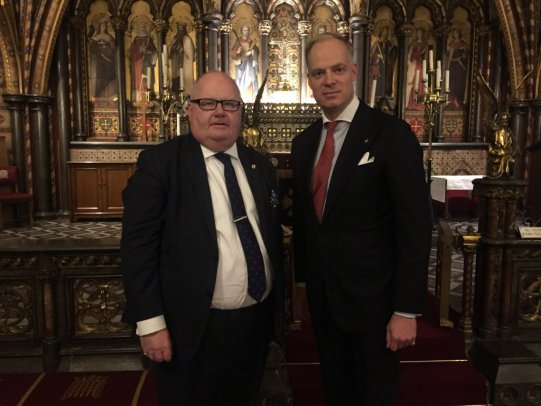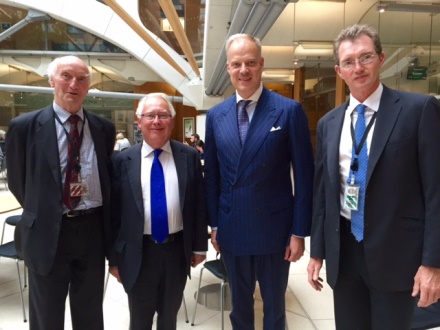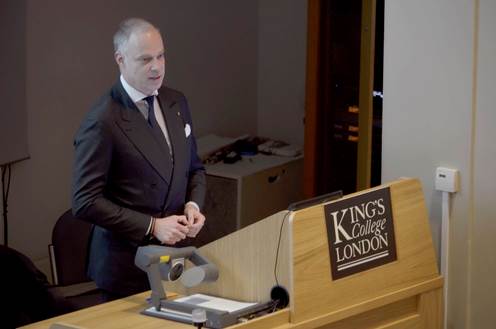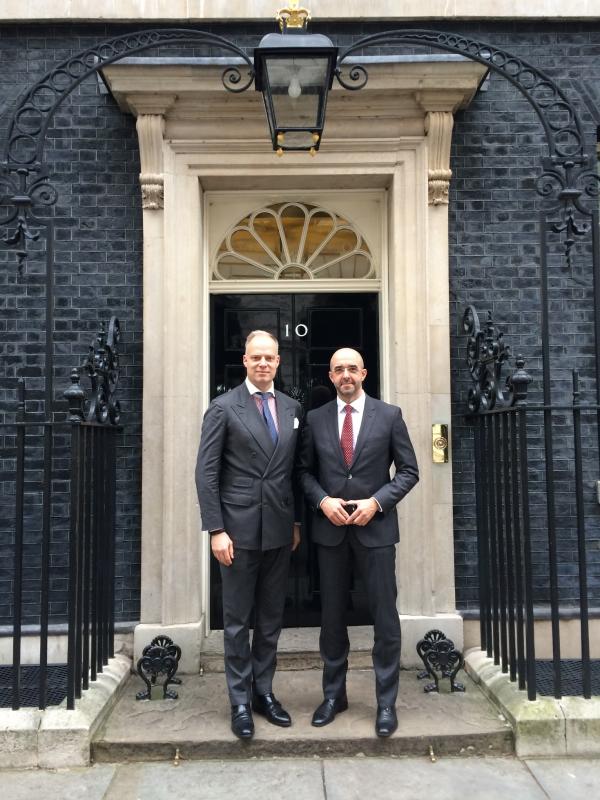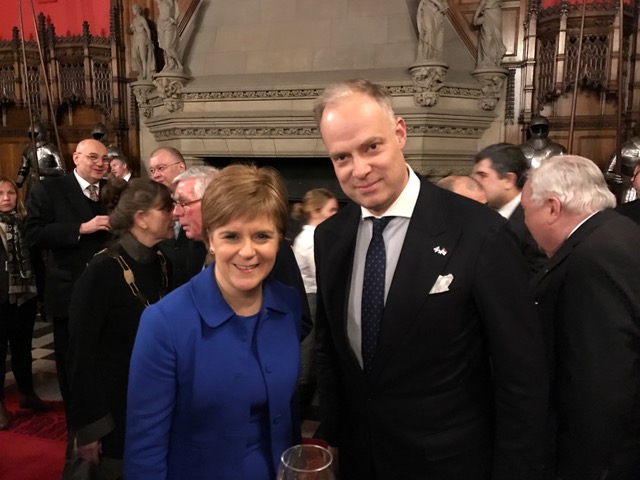Keresés: Xi
Keresés: Xi
A konzulátus érdekvédelmi feladatai
A konzulátus érdekvédelmi feladatait a konzuli védelemről szóló 2001. évi XLVI. törvény, illetve a törvény végrehajtásáról szóló 17/2001. (XI.15.) KüM rendeletben foglaltak alapján látja el.
Kérjük, hogy a jogszabályokat olvassa el, mielőtt a konzulátus segítségét kéri valamely ügy intézésében.
A külföldre utazó, illetve külföldön tartózkodó magyar állampolgárok saját magukért, illetve a gondozásukban, felügyeletük alatt álló személyekért maguk felelősek. A konzuli védelem feltételezi a felelős állampolgári magatartást, és szükség esetén az együttműködést a konzulátus munkatársaival.
A konzulátus a magyar közigazgatás részeként működő hivatal, munkatársai kormánytisztviselők, akikre – bizonyos eltérésekkel – a kormánytisztviselőkre Magyarországon is irányadó jogszabályok vonatkoznak. A konzulátuson nem tudunk az állampolgároknak szállást és étkezést, illetve egyéb szociális ellátásokat biztosítani. A segítségre szoruló állampolgároknak elsősorban abban tudunk segítséget nyújtani, hogy saját helyzetüket maguk, illetve családtagjaik, rokonaik, ismerőseik segítségével megoldják.
Az Egyesült Királyságot viszonylag könnyű elérni, ezért nagyon sokan utaznak ide, sokan családtagjaik, rokonaik tudtán kívül. Sajnos az országban nincs olyan egységes nyilvántartás, amelyben akár név, lakcím, akár rendőrségi adatok alapján egy családja látóköréből eltűnt, esetlegesen őrizetbe vett személyt keresni tudnánk. Nagyon fontos ezért, hogy ha valaki egy családtagját szeretné megkeresni, akkor az érintettre vonatkozóan a lehető legpontosabb adatokat adja meg, amely alapján a konzulátus a helyi hatóságok segítségével megpróbálhatja felkutatni az eltűnt/őrizetbe vett családtagot, rokont. Külön felhívjuk a figyelmet arra, hogy munkaidőn túl, illetve hétvégén, ünnepnapokon a konzulátus sem tud ilyen ügyekben intézkedni, mert a brit hivatalok és hatóságok is zárva tartanak.
Amennyiben egy magyar állampolgár anyagi segítségre szorul, családja, rokonai, ismerősei a Western Union pénzküldő szolgáltatás segítségével tudnak azonnal (egy-két órán belül) pénzt küldenia számára. Erre vonatkozóan lásd a honlap „Gyors pénzküldési lehetőség" menüpontját.
Gyermekvédelem az Egyesült Királyságban
Gyermekvédelmi vizsgálat a gyermekvédelmi törvény 47. cikke alapján
Az 1989-es gyermekvédelmi törvény értelmében a gyermekvédelmi szolgálat az illetékességi területén élő gyermekekkel, illetve fiatalkorúakkal kapcsolatban felmerülő aggályok esetében köteles vizsgálatot lefolytatni.
Mikor indulhat gyermekvédelmi vizsgálat?
Gyermekvédelmi vizsgálat indul, ha felmerül a gyanúja annak, hogy a gyermeket:
- fizikailag bántalmazzák
- elhanyagolják
- érzelmileg bántalmazzák
- szexuálisan bántalmazzák.
A fenti esetekkel kapcsolatosan felmerülő aggályokat bejelentheti:
- a rendőrség;
- a szülő, szomszéd, pedagógus vagy egészségügyi alkalmazott;
- egészségügyi intézmény.
A szolgálat minden bejelentést komolyan vesz és kivizsgál (beleértve a névtelenül érkező, illetve alaptalannak bizonyuló bejelentéseket is).
Információgyűjtés
Minden bejelentést a lehető leggyorsabban kivizsgálnak. A vizsgálat elején a gyermekvédelmi szolgálat egyéb hatóságok bevonásával (iskola, óvoda, háziorvos, rendőrség) végez információgyűjtést az adott családról. Amennyiben szükséges, a rendőrség és/vagy a gyermekvédelmi szolgálat látogatást tesz a családnál (rendszerint 24 órával a bejelentést követően).
Az elsődleges információgyűjtést követően döntés születik arról, hogy szükséges-e további vizsgálatot folytatni. A vizsgálat lezárultáról a szülőt haladéktalanul tájékoztatják.
A gyermek meghallgatása
Jelen lehet-e a szülő a gyermek meghallgatásánál?
- Általában igen. Időnként – a gyermek érdekeire való tekintettel, ha úgy ítélik meg, hogy a gyermek így nyíltabban tud beszélni a történtekről – a gyermeket a szülő távollétében hallgatják meg.
- Amennyiben a bejelentés és a gyanú szerint a szülő felelős a gyermek bántalmazásáért, úgy a gyermeket egyedül hallgatják meg. Ehhez kérni kell a szülő hozzájárulását, kivéve, ha úgy ítélik meg, hogy ezáltal a gyermek még nagyobb kockázatnak lesz kitéve.
- A gyermekvédelmi szolgálat munkatársainak minden esetben a gyermek érdekeit szem előtt tartva kell eljárniuk, figyelemmel az érzéseikre és kívánságaikra is.
A szülő meghallgatása
A meghallgatás alkalmat ad arra, hogy a szülő kifejthesse véleményét a bejelentéssel kapcsolatban, és elmondja, milyen intézkedéseket kíván tenni a probléma megoldása érdekében, valamint arra is, hogy a gyermekvédelmi szolgálat munkatársaival együtt megtárgyalják a következő lépéseket. Amennyiben a szülő nem beszél angolul, a gyermekvédelmi szolgálat tolmácsot biztosít a számára.
Orvosi vizsgálat
Orvosi vizsgálat lefolytatása indokolt lehet:
- hogy feltárják, mi történt pontosan;
- az esetleges sérülések kezelése érdekében.
A kisgyermekek – a sürgősségi ellátás eseteit kivéve - csak szülői hozzájárulás esetén vethetők alá orvosi vizsgálatnak. Ennek hiányában a gyermekvédelmi szolgálat bírósághoz fordulhat a szükséges engedély beszerzése érdekében. Az idősebb gyermekek saját maguk is beleegyezhetnek az orvosi vizsgálat lefolytatásába.
Miből áll az orvosi vizsgálat?
Fizikai, szexuális vagy érzelmi bántalmazás, illetve elhanyagolás gyanúja esetén komplett orvosi vizsgálatra van szükség, vagyis nem elegendő kizárólag a sérült testrészek vizsgálata, hiszen az orvosnak teljes képet kell kapnia a gyermek fejlettségéről és állapotáról. Szükség esetén a gyermeket kezelésben részesítik. A szülő engedélyével az orvos szövetmintát vehet, vagy felvételt készíthet a sérülésekről.
Az orvosi vizsgálat csak egy részét képezi a gyermekvédelmi vizsgálatnak, de természetesen nem ad választ minden kérdésre, ami a bejelentéssel kapcsolatban felmerül.
Jelen lehet-e a szülő az orvosi vizsgálat lefolytatásakor?
A szülőt rendszerint megkérik arra, hogy a vizsgálatkor legyen jelen egy szociális munkás kíséretében. Az idősebb gyerekek kérhetik, hogy a vizsgálat a szülő távollétében történjen.
Mi történik ezután?
Ha a szociális munkások meggyőződnek arról, hogy a gyermekkel kapcsolatos bejelentés tévesnek bizonyult, illetve hogy a sérüléseket baleset okozta, a vizsgálat lezárul.
Ha valószínű, hogy a gyermeknek jelentős sérüléseket okoztak, a vizsgálat továbbfolyik.
Szükség esetén a vizsgálatot kiterjesztik a család többi tagjára is. Esetenként fontos lehet a családban lévő többi gyermeket is orvosi vizsgálat alá vetni.
A rendőrség és a gyermekvédelmi szolgálat közösen elrendelheti, hogy a gyermekkel készült interjút videóra rögzítsék. Erre azért lehet szükség, mert egyes esetekben a rendőrség büntetőeljárást indít, amely során a felvétel bizonyítékul szolgálhat.
A gyermekvédelmi szolgálat a gyermek biztonsága érdekében szükség esetén bírósághoz fordulhat. Amennyiben ez azzal is jár, hogy a gyermeket kiveszik a szülői felügyelet alól, úgy a szolgálat más családtagok közreműködését és segítségét is kérheti.
A gyermekvédelmi szolgálat gyermekvédelmi konferencia összehívását kezdeményezheti, ha valószínű, hogy a gyermek súlyos sérüléseket szenvedett. A konferenciára a szülőt is meghívják, hacsak a távolmaradásának nincsen különös indoka.
A szülők jogai és kötelezettségei
A gyermekvédelmi szolgálat munkatársai, a rendőrség és az orvosok a vizsgálat során törekednek arra, hogy a szülőkkel együttműködve, a gyermek érdekeit szem előtt tartva járjanak el.
A szülőnek joga van:
- jogi tanácsadásra;
- a gyermek orvosi vizsgálatának lefolytatásához szükséges engedély megadására, vagy annak megtagadására;
- a gyermekvédelmi szolgálattal, valamint a rendőrséggel való együttműködés megtagadására;
- panaszt tenni a vizsgálatot folytató hatóságok munkatársainak eljárásával szemben;
- tolmács biztosítására.
Az orvosi vizsgálathoz szükséges hozzájárulás, illetve a hatóságokkal való együttműködés megtagadása esetén a gyermekvédelmi szolgálat bírósághoz fordulhat.
A gyermekek jogai
Minden gyermek – tekintet nélkül a szociális, vallási illetve kulturális hátterére – jogosult a jólétét és biztonságát garantáló gondoskodásra.
Minden gyermeknek joga van:
- az erőszakos bánásmód, valamint az elhanyagolás elleni védelemre;
- az orvosi vizsgálathoz való hozzájárulás megadására, illetve annak megtagadására, amennyiben elég idős ahhoz, hogy ebben a kérdésben felelősségteljesen tudjon dönteni;
- önálló képviseletre bármely bírósági meghallgatás során;
- panaszt tenni a vizsgálatot folytató hatóságok munkatársainak eljárásával szemben.
„Welfare Checklist”
Ha bírósági eljárás indul, a bíróság a gyermek érdekeinek maximális figyelembevételével hoz döntést arról, hogy milyen intézkedés megtétele szükséges. A bíróság a döntése során támaszkodik az ún „jóléti jelentés”-ben foglaltakra (welfare report). A jelentés hét szempont alapján vizsgálja a gyermek helyzetét, illetve körülményeit. Ez a hét szempont (az ún. „welfare checklist”) a következő:
- a gyermek kívánsága és érzései (életkorának és érettségének függvényében);
- fizikai, érzelmi és szellemi igényei, szükségletei;
- a körülményeiben bekövetkező bármiféle változás esetleges következményei;
- életkora, neme, háttere és bármely olyan tényező, amit a bíróság számottevőnek tart;
- az általa elszenvedett sérelmek, vagy annak kockázata;
- mennyire képesek a szülők/gondozók a gyermek szükségleteinek kielégítésére;
- a bíróság jogi lehetőségei az eljárás során.
A gyermekvédelmi szolgálat, illetve a bíróság eljárásával, valamint további családjogi kérdésekkel kapcsolatban az alábbi weboldalon tájékozódhatnak, illetve a következő telefonszámon érdeklődhetnek:
http://www.sfla.co.uk/welfarechecklist.htm
Tel: 0800 1777 167
Legalisation
Legalisation of signatures, translations and copies of documents
You can apply for legalisation at the Consulate, Honorary Consuls or Notaries Public. Please note that the possibilities for legalisation by Honorary Consuls and by Notaries Public are limited.
I., Legalisation at the Consulate
1., Appointment:
Appointments can be booked directly through our Appointment Booking System: https://konzinfobooking,mfa.gov.hu;
For further information please go to: ”Useful consular information”. For information about the fees please visit the following link: “Consular fees”.
If you need more than one document legalised, please amend the number of applicants accordingly.
2., Legalisation of signatures
There are two ways to have your signature legalised by the Consular Section of the Embassy of Hungary in London:
• you sign the document in the presence of the consul; or
• you recognise the signature on the document as yours in the presence of the consul.
Legalisation of a signature means that the consul checks the identity of the signatory person but does not take responsibility for the content of the document. The document should be prepared by the applicant in advance. The Consulate is not entitled to draw up the document. Should you need more copies of the legalised document, same day service cannot be guaranteed. In some cases, the legalised documents are returned via post within 10 calendar days. Information on the expected timeline can be provided at the time of the application. In order to avoid any inconvenience you are kindly requested to inform the consulate in advance on the number of the documents to be signed (consulate.lon@mfa.gov.hu)
The applicant should appear in person at the Consulate and should present his/her valid passport, ID card or driving licence. Please note that your application will be rejected if you fail to present one of these documents.
For information about the fees please visit the following link:“Consular fees”. (Fees vary on the basis of the number of the documents/signatories).
In case you would like to sign on behalf of a company (or other organisation) you should present the certificate of incorporation of the company. Certificate of incorporation shall have been issued within the previous 30 days.
2.a ) Life certificate
A Life Certificate is used by the the Hungarian Pension Fund Administration to check that a person living outside Hungary can still get a Hungarian state pension. To this end the Hungarian Pension Fund Administration sends a form for data reconciliation purposes every March to the pensioners. The form must be returned (accurately filled out, signed and authenticated) within one month of receipt. Please note that not only the consul is authorized to legalise the handwritten signature of the person entitled to benefits on the form, but also a British notary, pension insurance body, other British authority, pension fund, payment service provider (bank). If the pensioner is staying in a healthcare or social institution due to their health or social situation, the authenticity of the data can also be verified by the head of the institution or a doctor.
If you wish to have your signature legalised at the Consular Office you need to book an appointment through the online appointment booking system. The process is free of charge.
Please contact the Hungarian Pension Fund Administration directly with any questions regarding data reconciliation (e.g. whether they accept authentication from a specific British authority, deadlines, etc.). You can find their contact details by clicking here.
3., Legalisation of translations
The Consulate legalises translations English to Hungarian and Hungarian to English if the translation (prepared by a translator or by the applicant) should be used in Hungary and forms part of a consular procedure. The Consulate does not prepare translations (except for Certificate of good character).
Should you need an official translation to be used in the UK please contact an official translator in the UK. List of translators can be found on our website („Hungarian Translators and interpreters”).
If you need an official translation that should be used in Hungary but does not form part of a consular procedure you should contact the Hungarian Gazette Publishing Legal Translation Centre Ltd. (MKIFK) (previously known as Hungarian Office for Translation and Attestation Ltd (OFFI)) (http://www.offi.hu/en).
You should submit the original document together with the translation.
In accordance with Paragraph 2 of Article 5 of Regulation 1/2002 (23. January 2002) of KÜM-IM the consular officer may refuse to legalise translations which require specialized language skills.
You can submit your application for legalisation either in person (by appointment) or by post. Please note that due to high number of applications the Consulate can prepare the legalisation and post it to the applicant within 10 days, as a general rule.
Should you wish to submit your application by post, the consular fee should be sent by Postal Order payable to the ‘Embassy of Hungary’. Please ask for the correct amount in GBP by emailing konz.lon@mfa.gov.hu. Please make sure to include a self-addressed, pre-paid return envelope, as well as a cover note with your phone number or e-mail address. (We recommend that documents are sent to us by recorded or special delivery. We also recommend that documents are returned to you by the same means – please include a pre-paid recorded/special delivery self-addressed envelope.)
Please note that during the legalisation procedure the original document should be attached to the translation. In case you do not want the original (certificate, diploma, etc.) to be attached to the translation you are also required to send a copy of the document. Should you wish to have the copy legalised, as well, please mention it in your cover letter and include the corresponding sum in the Postal Order.
For information about the fees please visit the following link: “Consular fees”.
(Fees vary on the number of pages of the document.)
Applicants should present a valid proof of ID (ID card, passport or driving license) when attending the appointment. If the application is sent by post a copy of proof of ID should be enclosed.
4., Legalisation of copies
Legalisation of a copy: the Consulate legalises the copy the applicant made of an original document, upon presentation of the original.
Certified copy: upon presentation of the original document, the Consulate makes a certified/legalised copy of it.
You can submit your application for legalisation either in person (by appointment) or by post. Please note that due to high number of applications the Consulate can prepare the legalisation and post it to the applicant within 10 days, as a general rule.
Should you wish to submit your application by post, the consular fee should be sent by Postal Order payable to the ‘Embassy of Hungary’. Please ask for the correct amount in GBP by emailing konz.lon@mfa.gov.hu. Please make sure to include a self-addressed, pre-paid return envelope, as well as a cover note with your phone number or e-mail address. (We recommend that documents are sent to us by recorded or special delivery. We also recommend that documents are returned to you by the same means – please include a pre-paid recorded/special delivery self-addressed envelope.)
For information about the fees please visit the following link:“Consular fees”.
(Fees vary on the number of pages of the document.)
Applicants should present a valid proof of ID (ID card, passport or driving license) when attending the appointment. If the application is sent by post a copy of proof of ID should be enclosed.
II., Legalisation at the Honorary Consul
Please note that only the honorary consuls in Belfast and in Sheringham are entitled to legalise signature or copies of documents.
1., Appointment
For appointment please contact the Honorary Consul. Contact details can be found on our website („Consular offices in the UK”).
2., Legalisation of signatures
Legalisation of a signature means that the honorary consul checks the identity of the signatory person but does not take responsibility for the content of the document. The document should be prepared by the applicant in advance. The honorary consul is not entitled to draw up the document.
The applicant should appear in person at the Honorary Consulate and should present his/her valid passport, ID card or driving licence. Please note that your application will be rejected if you fail to present one of these documents.
In case you would like to sign on behalf of a company (or other organisation) you should contact the Consulate in London, Manchester or Edinburgh!
3., Legalisation of translations
The Honorary Consuls are not authorised to legalise translations.
4., Legalisation of copies
Legalisation of a copy: the Honorary Consul legalises the copy the applicant made of an original document, upon presentation of the original.
Certified copy: upon presentation of the original document, the Honorary Consulate makes a certified/legalised copy of it.
You can submit your application for legalisation in person and and should present your valid passport, ID card or driving licence.
III., Legalisation by Notaries Public
Signatures and copies can be legalised by Notaries Public, as well. Please note that signatures and copies legalised by Notaries Public can only be accepted in Hungary if the document is further legalised with Apostille. For further information about Apostille in the UK please visit the following website: https://www.gov.uk/get-document-legalised.
Péter Szijjártó, Minister of Foreign Affairs and Trade visited London on 18-19 October 2016 for official meetings
Péter Szijjártó, Minister of Foreign Affairs and Trade visited London on 18-19 October 2016 and met Boris Johnson, Foreign Secretary, David Davis, Secretary of State for Exiting the European Union, Philip Hammond, Chancellor of the Exchequer and David Lidington, Leader of the House of Commons.
The parties exchanged views about the prospects of Brexit, Minister of Foreign Affairs and Trade, Péter Szijjártó laying emphasis on the utmost importance for Hungary of a deal between London and the EU guaranteeing that trade, investment and economic links between the United Kingdom and the EU will be without obstacles as much as possible. As part of the series of events organized by the Embassy of Hungary and the Hungarian Cultural Center in London to commemorate the 60th anniversary of the 1956 Hungarian revolution, Minister Szijjártó participated at a reception in the spectacular Guildhall joining his colleague, Foreign Secretary Boris Johnson in praising the heroes of the Hungarian freedom fight. He also opened the exhibition of ‘The 1956 Hungarian Revolution in Pictures by John Sadovy’. Parties signed the memorandum of understanding to launch the UK-Hungary Business Council during the visit of Minister Szijjártó.
Client Gate (Ügyfélkapu) registration
What is the “Client Gate” and why do I need it?
Client Gate (or “Ügyfélkapu” in Hungarian) is an access point to e-government services in Hungary. The system provides a platform for its users to connect with Hungarian authorities offering electronic administration services. It lets you take care of paperwork online or book appointments at government service offices (“kormányablakok”) in Hungary.
Please note that as of 16 January 2025 the Client Gate service will no longer be available and will be replaced by the Client Gate+ service. For information on the migration please visit https://kau.gov.hu/dap/sugo/ugyfelkapu-plusz .
Who can register for the „Client Gate”?
Any natural person who is registered in:
- the Hungarian personal data and address registry, or
- the central immigration registry of the Hungarian Immigration Authority, or
- the personal registry of aliens (foreign citizens) applying for electronic administration.
Where can you register for the „Client Gate”?
In person at:
- local government service offices;
- key helpdesk offices of the National Tax and Customs Administration;
- foreign diplomatic and consular representations of Hungary;
- helpdesks of particular post offices
Online:
- as a holder of a valid Hungarian ID card issued after 1 January 2016, on this site.
Registering for the “Client Gate” in person:
Scheduling an appointment via our online booking system is required (please select “Registration for online government services (Online Personal Portal).
The registration is free of charge and takes around 10 minutes.
What documents do I need to take with me?
Hungarian Citizens: valid Hungarian ID (ID card, driving license, passport)
EEA Citizens: valid EEA ID or passport
non-EEA Citizens: valid passport
Note: Upon new registration, clients receive their initial password via e-mail. Accounts must be activated by changing the initial password within 5 days after the date of registration.
Ambassador Kristóf Szalay-Bobrovniczky met Sir Eric Pickles MP, UK Special Envoy for Post-Holocaust issues
Ambassador Kristóf Szalay-Bobrovniczky met Sir Eric Pickles, Conservative MP, Special Envoy for Post-Holocaust issues of the UK government on 18 October 2016 in the House of Commons.
The parties exchanged views about developments in the field of fighting against antisemitism in Hungary and the UK respectively, prospects of the Brexit process and other current topics of mutual interest.
Zoltán Kovács, Spokesperson of the Hungarian Government paid a visit to London on 12 September 2016
Zoltán Kovács, Government Spokesperson at the Cabinet Office of the Prime Minister of Hungary visited London on 12 September 2016. The aim of the visit was to provide information about the referendum on mandatory EU migrant quotas due to take place on 2 October in Hungary, share the latest economic figures of Hungary, as well as exchange views about the post-Brexit situation.
In the framework of a press breakfast, Mr Kovacs had a discussion with representatives of the British media and later exchanged views with Hungarian correspondents working in London. During the visit, the Spokesperson had a working lunch with Colin Bloom, Director for Outreach at the Conservative Party, had background talks in the BBC, and was interviewed by Sky News.
Meetings of Ambassador Kristóf Szalay-Bobrovniczky in the Houses of Parliament
The Ambassador had his first introductory meetings in the House of Commons and House of Lords during the week of 11-15 July 2016.
He met members of the Hungary All-Party Parliamentary Group to discuss the post-EU-referendum situation in Westminster and the Parliament’s role in the process. Brexit was the main topic of discussion with prominent Eurosceptic Bill Cash MP, Chair of the EU Scrutiny Committee and Lord Boswell, Chair of the EU Select Committee.
Discussion between Kristóf Szalay-Bobrovniczky and peers and MPs interested in Hungary
Ambassador Kristóf Szalay-Bobrovniczky hosted a dinner on 23 November 2016 in honour of MPs and peers with an interest in Hungary.
The Ambassador had an exchange of views with the participants about the political and economic landscape in Hungary and the United Kingdom, as well as the aftermath of the Brexit vote. Mr Bob Neill MP, Chair of the Hungary All-Party Parliamentary Hungary Group, Sir William Cash MP, Chair of the European Scrutiny Committee of the House of Commons and Sir Edward Leigh MP represented the UK Conservative Party, while Dame Rosie Winterton MP, Lord Gordon of Strathblane, Lord Anderson of Swansea, Lord Davies of Stamford and Clive Betts MP were present from the Labour Party. Mark Boleat, Chairman of the Policy and Resources Committee represented the City of London contributed with the business angle to the discussion.
Deputy State Secretary, Political Director Levente Benkő visited London on 25 November 2016
Levente Benkő, Deputy State Secretary, Political Director of the Ministry of Foreign Affairs and Trade visited London on 25 November 2016, where he had an exchange of views with his UK counterpart, Tim Barrow, Political Director of the Foreign and Commonwealth Office, Anthony Philipson, Director for Partnerships and Trade at the Department for Exiting the European Union, Sir William Cash, Conservative MP, Chair of the European Scrutiny Committee of the House of Commons and prominent UK opinion shapers, including senior officials from the FCO, politicians, think tank leaders and journalists.
During the talks, the parties had discussions about current topics of mutual interest, inter alia, prospects of the Brexit process, possible impacts of the recent US elections, recent developments of the migration crisis, and touched upon regional issues such as Russia, Ukraine, Western Balkans, Syria, Iran and Egypt.
Panel discussion of the V4 ambassadors at the King’s College London
The V4 countries are committed to EU integration and its achievements, but a strong EU needs to be built on strong Member States, emphasised His Excellency Ambassador Kristóf Szalay-Bobrovniczky at a panel discussion organised by King’s College London Diplomatic Society. The event on 5th December 2016 brought together the four Visegrád ambassadors for an exchange of views with the audience on the future of the EU after Brexit.
The strength of the EU lies in being “united in diversity”, which includes preserving national and cultural identities as well – we do not need “more” or “less” Europe, but a “better” Europe, the Ambassador underlined. The four ambassadors stressed that there are no official positions on Brexit, since negotiations haven’t started yet, but all referred to the importance of preserving strong bilateral and multilateral ties with the UK. Ambassador Szalay-Bobrovniczky added, that we do not need a hard or soft, but rather a fair Brexit.
Ambassador Kristóf Szalay-Bobrovniczky was received in the House of Lords by the Lord Speaker
Ambassador Kristóf Szalay-Bobrovniczky had a discussion with Lord Fowler on 10 January, following the appointment of Lord Fowler as the new Lord Speaker in September 2016.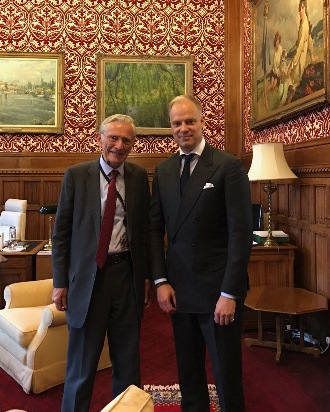
The parties exchanged views about the role of the House of Lords in the Brexit process and the Ambassador gave an overview about the Hungarian position on Brexit. They also touched upon the migration crisis with the Ambassador explaining the background of the measures taken by the Hungarian government to handle illegal migration.
Special visa information in the UK
IMPORTANT NOTICE ON RULES AND REGULATIONS
1.) The European Commission has formally adopted a revised harmonised list of supporting documents on 6 September 2021 which is now applicable.
2.) The BREXIT transition period has ended. As of 1 January 2021 Third-country national EEA/EU/Union family members holding a UK residence permit explicitly issued to the EEA/EU/Union family member shall obtain an entry visa before visiting Hungary. This rule only applies to those Third-country national family members, who need a visa to cross the Schengen borders.
3.) British citizens do not need a visa to visit countries in the Schengen Area short-term after Brexit. The UK has now joined a group of visa-exempt third countries which means that, although the UK is now a third-nation, its citizens are not subject to visa requirements. Whilst a visa is not needed for transit, tourism or family visit, British citizens who wish to enter for other reasons such as to work should check the visa requirements of the specific EU member state. Hungary does not require a visa from British citizens for any reason (including work) for up to 90 days in any 180-day period. British citizens who wish to enter Hungary to work should check if they need a work permit (which is not a visa) with the help of their future employer. Information in Hungarian is available for employers at the National Employment Service's website. Should the intended stay, for any reason, exceed 90 days in any 180-day period, British citizens need to apply for a residence permit (see point I below)
4.) As of 2 February 2020 new EU rules on short-stay visas make it easier for legitimate travellers to apply for a visa to visit Europe, facilitating tourism, trade and business, while providing more resources for countering irregular migration risks and threats to internal security. For further details please visit https://ec.europa.eu/commission/presscorner/detail/en/qanda_20_149
5.) Please note that the visa procedure concerning family members of Hungarian citizens has changed with effect from 1 January 2019. Family members of Hungarian nationals who need a visa to travel to Hungary based on the 2018/1806/EU Regulation should lodge the application in line with the general Schengen visa procedure (see below: point II. 3-7)
6.) Consulates are collecting fingerprints and digital photos from visa applicants and the applicants' data will be stored in the Visa Information System (VIS).
The data can be consulted by all visa-issuing authorities of the Schengen States, and is counter-checked by border authorities at the entry of the visa holder into the Schengen area.
For further information click here
7.) Non-EU citizen need a valid passport fulfilling the following criteria:
· its validity shall last until at least three months after the intended date of departure from the territory of the Member States
· it shall have been issued within the previous 10 years.
8.) List of travel documents which entitle the holder to cross the external borders of the Schengen Area and which may be endorsed with a visa can be found on the following website at the (Info banner on the right, under 4 different links):
http://ec.europa.eu/dgs/home-affairs/what-we-do/policies/borders-and-visas/index_en.htm
9.) Please note that a visa is only a prerequisite for entering the country. However, entry conditions may be checked at the border and you might be refused to enter the country even if you possess a valid visa in case you fail to comply with the entry conditions.
---------------------------------------------------------------------------------------------------------------------------------------------------------
VISAS AND RESIDENCE PERMITS
I. RESIDENCE PERMIT
Foreigners intending to stay more than 3 months in Hungary may apply for a residence permit at VFS Global. VFS Global is accepting walk-in appointments for residence permit applications on Tuesdays and Thursdays between 1-2 pm in London. Information on residence permit procedure including the downloadable application form and the correspondent appendixes can be found on the website of the National Directorate-General for Aliens Policing and also on the website of VFS Global.
Please note that as of 1 January 2019, third-country national family members of Hungarian citizens shall apply for a residence permit on the grounds of family reunification for residence exceeding three months. For further details, please click here.
VISA APPLICATION CENTRE
London
Joint Visa Application Centre
66 Wilson Street
London
EC2A 2JX
For more information: InfoUKHungary@vfsglobal.com
II. SCHENGEN VISA
1. General information
Hungary is a member of the Schengen Area, therefore if you have a valid Schengen visa (i.e. you have not surpassed the validity date, the number of days and the number of entries permitted) then you can use it to travel to Hungary as well.
We would strongly recommend you to apply for a visa as early as possible but not more than 6 months before the date of your actual journey.
In accordance with Article 9 of the Community Code on Visas (810/2009 Regulation of the Council and the Parliament) the application should be lodged at least 15 days before the intended travel. If an applicant fails this time due to the point II.3.3.1 of the C(2010) 1620 decision of the European Committee published on 19th March 2010 it is his/her responsibility. Please note that in certain cases the visa procedure could take up to 45 days (in accordance with Article 23 of the Visa Code).
2. Where to apply for a Schengen visa to Hungary
Visa service is provided at the Visa Application Centre for Hungary by VFS Global Services Ltd. (please see point 3.). VFS assists applicants with the procedure and forwards the application to the Embassy for an additional fee.
Please note that if you are not resident in the UK you should normally apply for a visa at the Hungarian Embassy or Consulate in your country of residence.
Should you want to visit a Schengen Member State you should apply for a visa at the Consulate of that country. Should you wish to visit several Schengen Memeber States within the same trip you should apply at the Consulate of the country where you intend to stay for the longest period of time. Should you intend to visit several Schengen Memeber States but no main destination can be determined you should apply at the Consulate of the country whose external border you will cross first in order to enter the territory of the Schengen Area.
Applications should be lodged at least 15 days before the intended travel date. Please note that neither the Consulate nor the Visa Centre takes responsibility for applications submitted less than 15 days before the intended departure and the Consulate reserves the right to return such applications without making any decisions on them.
3. How to apply for a Schengen visa to Hungary
All Schengen visa applications shall be lodged at one of the following VFS visa application centres:
London
Joint Visa Application Centre
66 Wilson Street
London
EC2A 2JX
Edinburgh
Joint Visa Application Centre
1 Reenie’s Isle
Leith
Edinburgh
EH6 6QT
Manchester
Joint Visa Application Centre
50 Devonshire Street North
Manchester
M12 6JH
VFS is accepting walk-in appointments (between 8:30am and 11am) for the following categories only:
- Family members of Hungarian Nationals, visiting family/friends
All other categories need to book an appointment using VFS appointment portal.
For further information and/or clarification feel free to contact VFS' helpline at InfoUKHungary@vfsglobal.com or call 0871 376 2101 from Monday to Friday between 08.30am and 5.30pm
***
This is a fast track service as the Centre can receive a high number of applicants and VFS offers support to applicants during the procedure. The service costs £29 in addition to the visa fee.
For more information, please visit the website https://visa.vfsglobal.com/gbr/en/hun/
4. Duration of the procedure
In accordance with 810/2009/EC regulation (Visa Code) applications shall be decided on within 15 calendar days of the date when the application has been considered as admissible by the consulate. However, this period may be extended up to a maximum of 45 days in individual cases, notably when further scrutiny of the application is needed.
5. Visa fees
Visa fees can be checked here.
Visas are issued free of charge for the following applicants:
- children under the age of 6 travelling with their own passports,
- family members of EU/EEA citizens either travelling together with their EU/EEA national family members or travelling in order to meet their EU/EEA national family members (family members of Hungarian nationals do not fall under this category)
- researchers having a valid contract with a research institution in Hungary,
- pupils, students and their teachers travelling for study reasons,
- representatives of non-profit organizations under the age of 25 participating and attending seminars, conferences, sport, cultural or educational events organised and held by NGOs,
- Belarus citizens between the age of 6 and 12 years,
- Turkish citizens between the age of 6 and 12 years,
- Belarus national participants aged 25 years or less in seminars, conferences, sport, cultural or educational events organised by non-profit organisations.
A reduced fee applies to the following applicants:
- nationals of countries having a visa facilitation agreement with the European Union: Albania, Armenia, Azerbaijan, Bosnia and Herzegovina, Georgia, Macedonia, Moldova, Montenegro, Russia, Serbia and Ukraine.
A reduced fee applies to the following applicants:
- children between the age of 6 and 12 years
The visa fee can be paid by cash, debit/credit card or Postal Order, when the application is submitted at VFS Visa Center.
Please note that in case of refusal the fee will NOT be reimbursed.
6. Supporting documents to be presented by visa applicants
The European Commission has formally adopted a revised harmonised list of supporting documents on 6 September 2021 which is now applicable.
General requirements when applying for a short stay visa (C):
- passport containing at least two blank pages, issued within 10 years before the submission of the visa application and its validity shall extend at least three months after the intended date of departure from the Schengen area,
- a United Kingdom residence permit valid for at least one months beyond the intended departure from the Schengen area,
- a wholly and legibly completed and signed visa application form,
- a passport-size colour photo (not older than 6 months),
- travel medical insurance valid throughout the territory of the Schengen area and covering the entire period of the applicant’s intended stay or transit. The minimum coverage shall be €30,000 (such travel medical insurances are available at all post offices),
- documents indicating the purpose of the journey,
- documents in relation to accommodation or proof of sufficient means to cover the costs of accommodation,
- proof of sufficient means of subsistence (eg. recent bank account statements, payslips etc),
- confirmed outward and onward flight/ferry, etc. reservation.
The applicant shall present the original, as well as the copy of the documents when submitting the application!
7. Specific requirements
Specific requirements depend on the main purpose of travel, the length of the intended stay and the personal circumstances of the applicant. For more information please visit the following websites.
List of supporting documents can be found as checklist on VFS' website: https://visa.vfsglobal.com/gbr/en/hun/
Please bear in mind that the consul may ask for additional documents anytime during the visa procedure and applicants may be called for a personal interview, as well.
8. Documents required from family members of EU/EEA citizens
Third country national family members of EU/EEA nationals accompanied by the EU/EEA national or joining the EU/EEA national are waived from visa obligation only if they possess a ‘residence card of a family member of an EU/EEA national’ issued by an EU/EEA Member State (the UK is no longer an EU Member State). Please note that you may be requested by the immigration authorities to provide documentary proof of family relationship (e.g. original certificate of birth, marriage or civil partnership).
Third-country national EEA/EU family members holding a UK residence permit explicitly issued to the EEA/EU/Union family member shall obtain an entry visa before visiting Hungary. This rule only applies to those third-country national family members, who need a visa to cross the Schengen borders.
Family members applying for a visa are requested to provide proof of their EUSS status (pre-settled or settled), proof of the family relationship (e.g. marriage certificate) and proof that they are travelling together with their EEAU/EU family member (e.g. flight ticket) or joining them (e.g. invitation letter).
IMPORTANT NOTE! Family members of Hungarian nationals who need a visa to travel to Hungary based on the 2018/1806/EU Regulation should lodge the application in line with the general Schengen visa procedure (see points II.3-7. above).
9. Visa refusal
If the visa is refused, annulled or revoked, applicants have the right to appeal. Appeals can be submitted in person either by the applicant or by the person who has a power of attorney from the applicant at the competent Hungarian Consulate (that refused the visa application) 8 days within the date of receiving the decision on refusal and 3 days within the date of receiving the decision on the annulment or revocation of a visa. An appointment shall be booked via email at visa.lon@mfa.gov.hu.
The Department of Consular Affairs of the Ministry of Foreign Affairs and Trade decides on the appeals within 15 days (in case of annulment or revocation of a visa within 5 days). The appeal should be lodged in writing and it should be signed by the applicant. The appeal must be submitted in Hungarian or in any other official languages of the European Union. If the applicant lodges the appeal in another language he/she must submit an official translation thereof.
The fee of the appeal procedure should be paid when submitting the appeal by debit card or Postal Order made out to the Embassy of Hungary. The fee for the appeal procedure cannot be reimbursed, not even in case of a positive decision. Reduction of the fee is not possible and must be paid by all applicants (even if the visa procedure was free of charge).
Further supporting documents may be submitted during the appeal procedure and the applicant might be called to the consulate for a personal interview.
The decision on the appeal may be subject to judicial review.
In case of refusal a new application may be submitted at any time and the visa fee has to be paid again. For further details about the appeal procedure please check the information on the refusal form.
10. Getting your passport back
Upon collection of the passport, applicants are advised to check the entries of the visa sticker, and notify the Consulate in case of any discrepancy.
11. Information on visa waiver agreements
Please visit the website of the Hungarian Consular Service:
https://konzinfo.mfa.gov.hu/en/visa-free-travel-hungary
Meeting with prominent Conservative MPs
Ambassador Kristóf Szalay-Bobrovniczky hosted a discussion with Sir William Cash, Chairman of the European Scrutiny Committee of the House of Commons and other prominent Conservative Brexiter Members of the Parliament.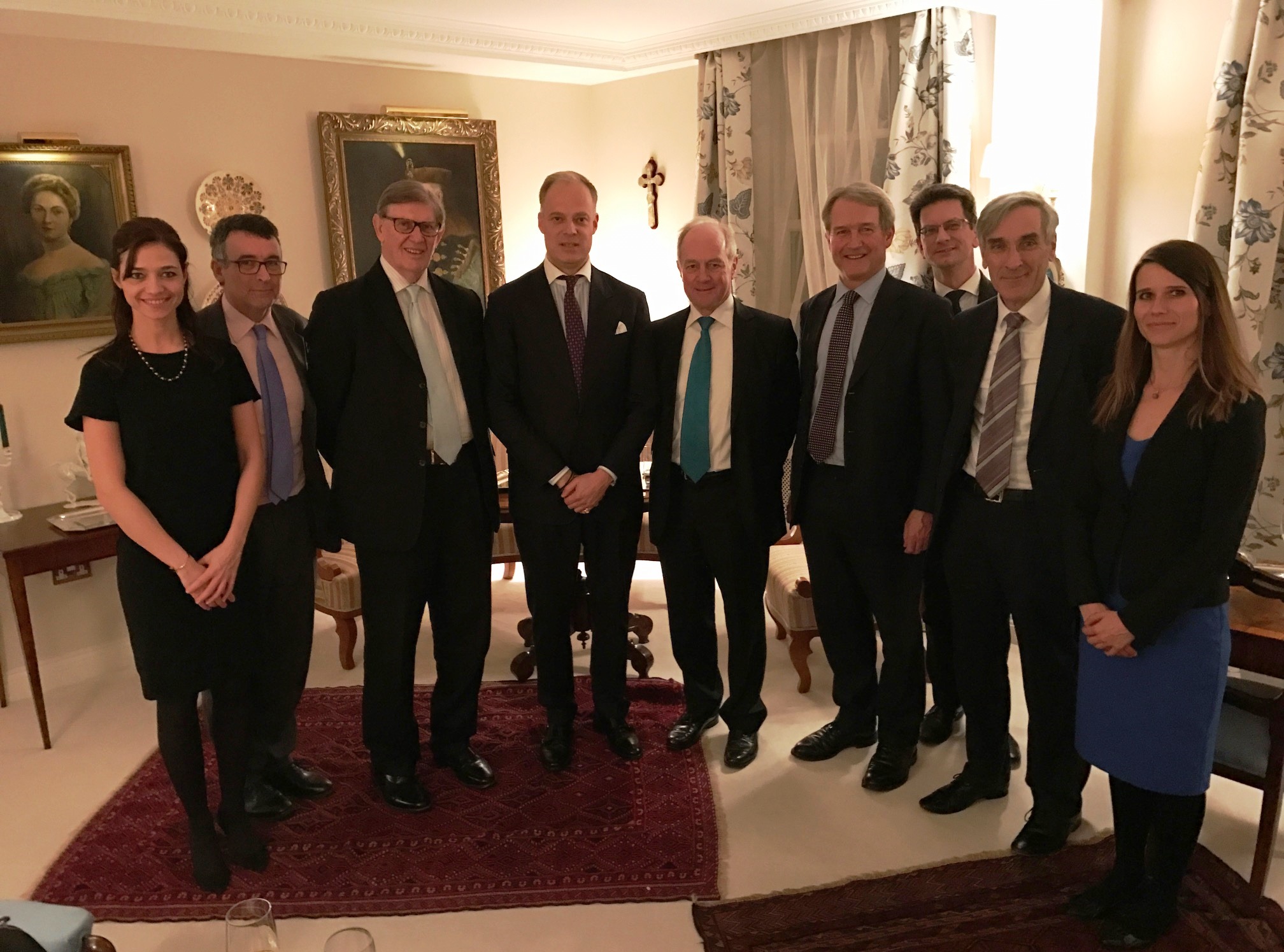
Sir William Cash, The Rt. Hon. Peter Lilley, The Rt. Hon. John Redwood, The Rt. Hon. Owen Paterson, Mr Bernard Jenkin and Mr Steve Baker explained the reasons behind their support for the United Kingdom to leave the European Union and exchanged views about the future of Britain and Europe. The Ambassador gave an overview about the official positon of the Hungarian government on the Brexit process and underlined the increased importance of the Visegrad countries. The MPs reassured the Ambassador that even though they voted for Brexit, they also regard it important to guarantee the rights of the EU citizens already residing in the United Kingdom.
The visit of the Government spokesperson
The Government spokesperson has visited London on 6 February 2017 to request information about the changes in government communication practices after the Brexit referendum and to give interviews to British, international and Hungarian news outlets.
Zoltán Kovács government spokesperson met Greg Swift, deputy spokesperson of Theresa May and Conrad Bird, the director of the GREAT campaign. Upon meeting journalists and reporters he informed them in detail about the Hungarian Government’s foreign affairs endeavours and the Hungarian administration’s standpoints on foreign affairs development, among others on the EU summit in Valletta, the visit of president Putin to Hungary, migration and Brexit. The day closed with an interview to Sky News Tonight show.
The Ambassador met the SNP’s Angus Robertson
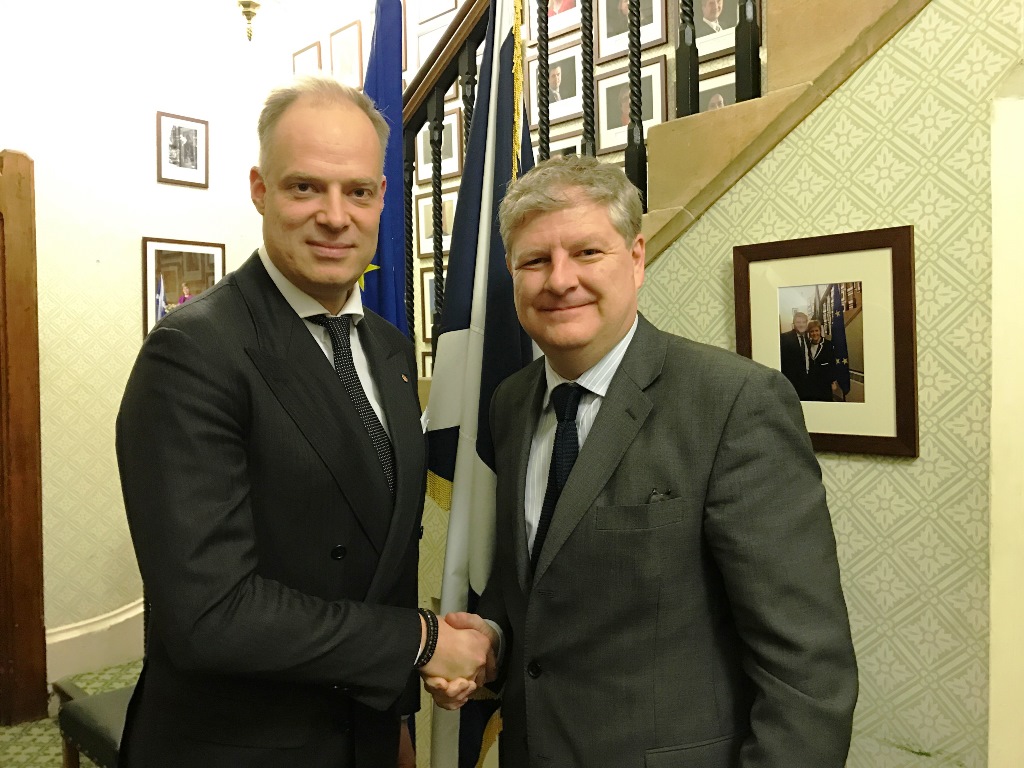
Ahead of his official visit to Scotland on 22-24 February 2017, Ambassador Kristóf Szalay-Bobrovniczky met Angus Robertson, Member of the Parliament for the Scottish National Party (SNP), Westminster leader of the SNP, Deputy SNP Leader on 20 February.
The parties exchanged views about current topics of mutual interest relating to Hungary and Scotland/UK. Angus Robertson explained the Scottish devolved government’s official position on the Brexit process, while the Ambassador gave an overview about the purpose of his visit to Scotland, including understanding the Brexit related thoughts of representatives of the region’s business, political and university circles and further improving our mutual cooperation in the field of business, culture and education.
The Ambassador met John Whittingdale MP
On 21 February 2017, Ambassador Kristóf Szalay-Bobrovniczky met John Whittingdale, Conservative Member of the Parliament for Maldon, who will be heading the delegation of the British Group Interparliamentary Union (BGIPU) to Hungary between 27 February and 2 March.
The Ambassador and the MP, who is also member of the All-Party Parliamentary Group on Hungary exchanged views about current topical issues, like prospects of the Brexit process, expectations regarding the new US administration or the current situation in Eastern Europe.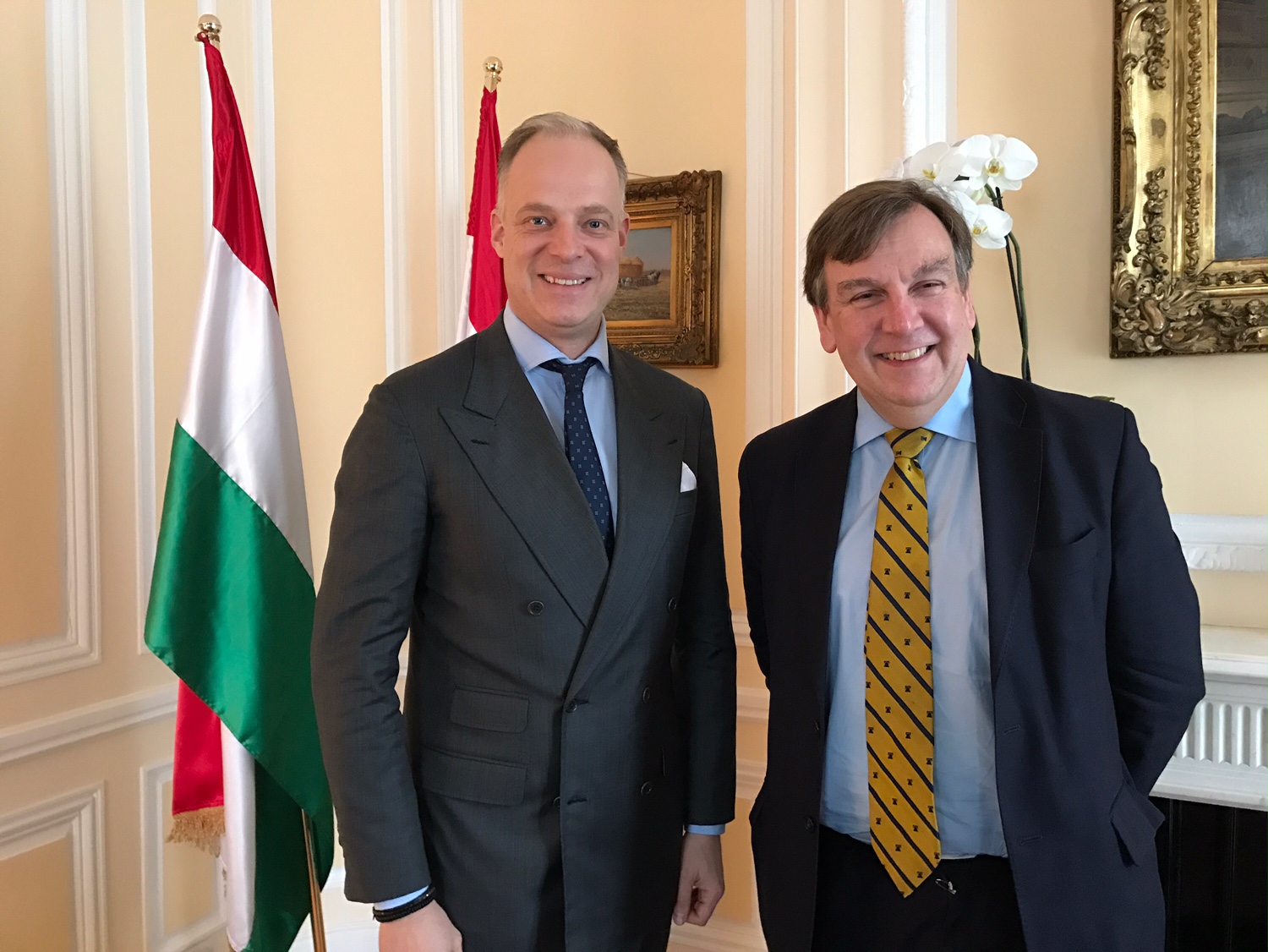
The Ambassador met Michael Gove MP
Ambassador Kristóf Szalay-Bobrovniczky met Michael Gove, Conservative Member of the Parliament for Surrey Heath on 20 February 2017.
In light of a recent interview by Mr Gove with the new US President Donald Trump, the Ambassador and the MP discussed different expectations regarding the new US administration, prospects of Brexit and recent topics of mutual interest about Hungary and the UK.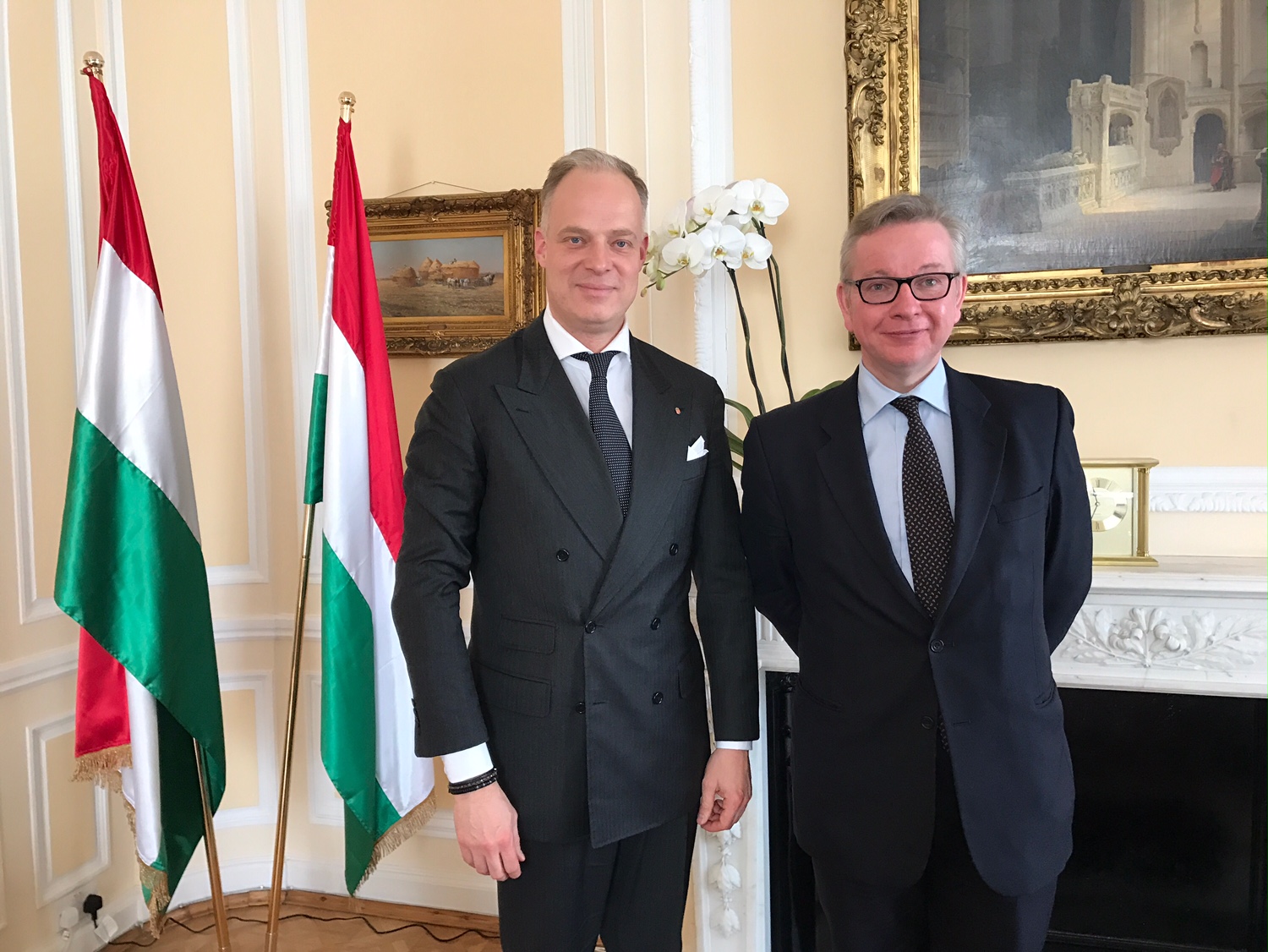
The Ambassador visited Scotland
Ambassador Kristóf Szalay-Bobrovniczky visited Scotland between 22-24 February 2017, as a first stage of a series of visits to the devolved territories, with the aim to receive first-hand information about the Brexit related thoughts of representatives of the region’s business, political and university circles and further improve our mutual cooperation in the field of business, culture and education.
In the Scottish Parliament, the Ambassador was received by the Presiding Officer, Ken Macintosh. From the Scottish government, he met First Minister Nicola Sturgeon and had a discussion with Cabinet Secretary Fiona Hyslop, whilst from the opposition, he had an exchange of views with Ruth Davidson, leader of the Scottish Conservatives. The Ambassador also met with Sadie Doherty, Lord Provost of Glasgow and Donald Wilson, Lord Provost and Lord Lieutenant of Edinburgh.
Among the business related discussions, Ambassador Szalay-Bobrovniczky met with representatives of MOL UK Ltd., Skysanner, Scotch Whisky Association, Scottish Financial Enterprise, Scottish Enterprise and Invest Glasgow.
In the field of education, meetings took place with senior officials of Glasgow University, Queen Margaret University and University of Edinburgh. At the Business School of The University of Edinburgh, the Ambassador delivered a lecture titled ’The Future of Europe after Brexit – Hungarian / Central European Perspective’.


